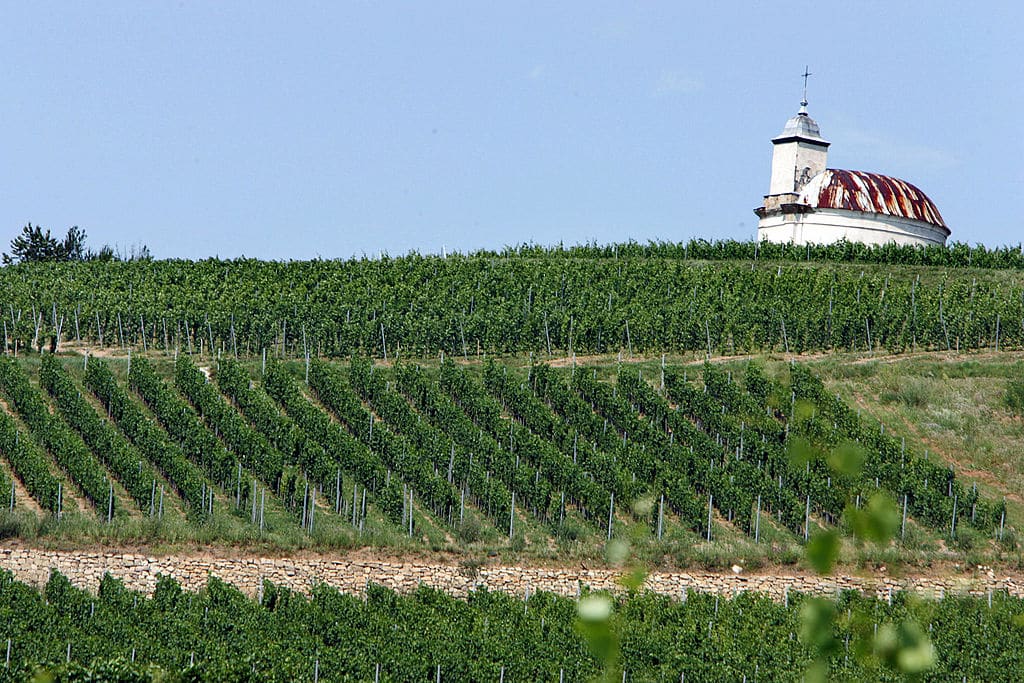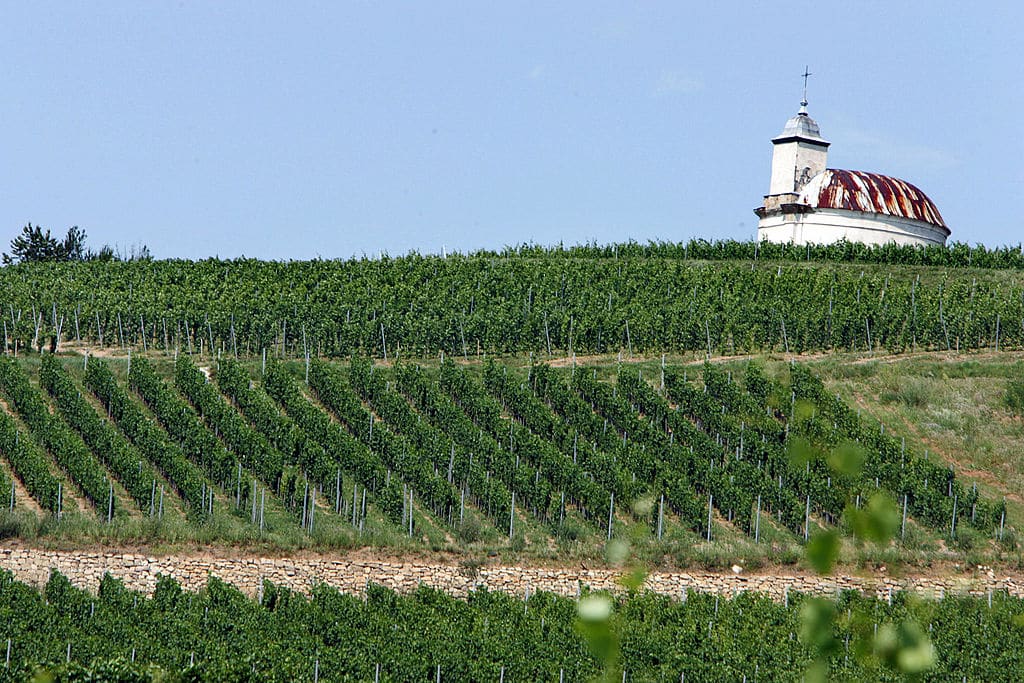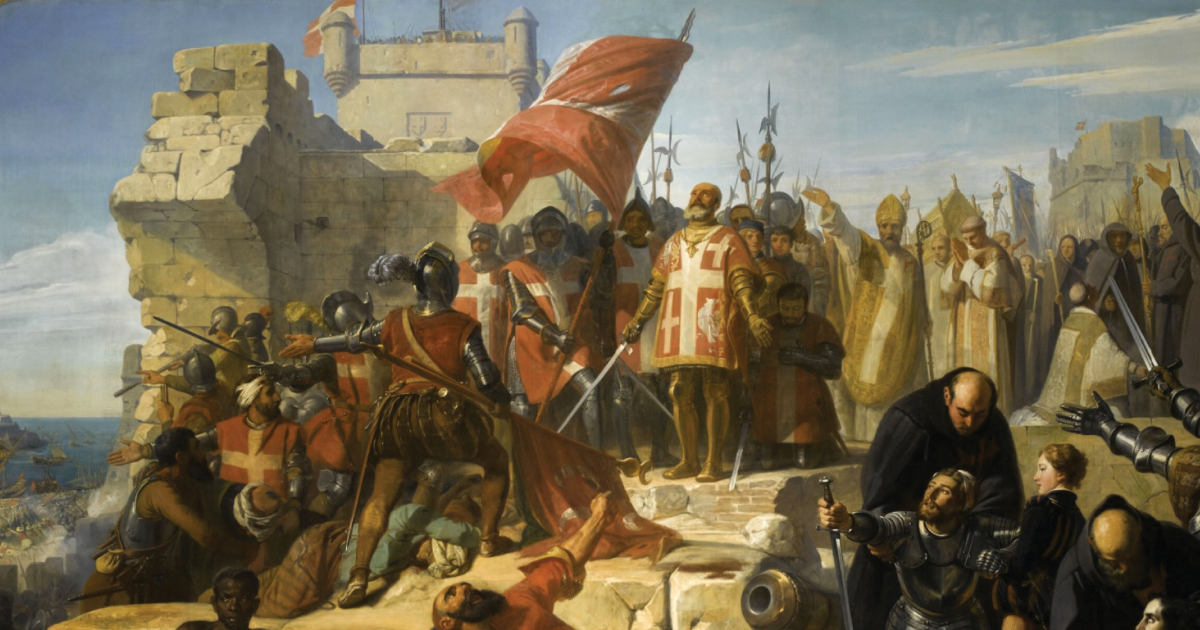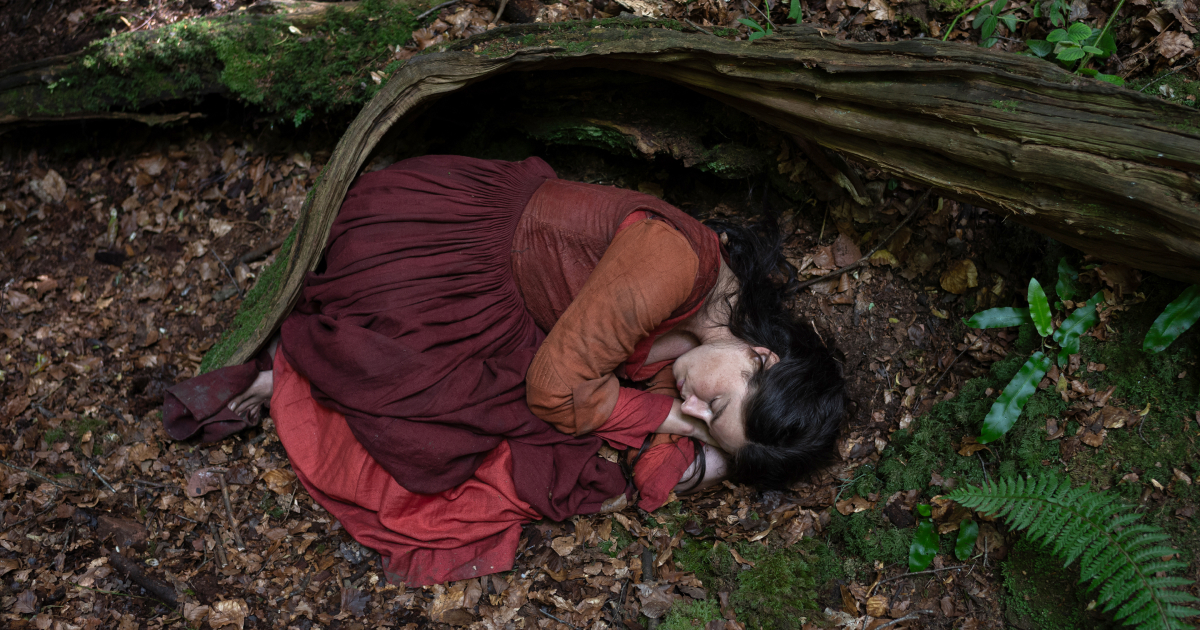John Calvin has a well-earned reputation as a curmudgeon. Famed as a hater in his day, with even his friends becoming targets, and ultimately becoming an authoritarian tyrant in Geneva, he spent much of his time micromanaging the joys and pleasures of his subjects.
It seems rather surprising, then, that the Calvinist tradition which sprung from the writings of this austere prophet would also produce magnificent, festive wines.
The delightfully named Oremus hails from the illustrious Hungarian wine-growing region of Tokaj. Once part of the Austro-Hungarian empire, Tokaj came under the sway of the reformed tradition in the wake of the European Reformation.
Although viticulture had a storied legacy in this part of Europe, the history of our wine here began to take shape in the early 17th century when a certain Calvinist pastor, Szepsi Laczkó Máté, turned his hand to the cultivation of grapevines in the employ of the Prince of Transylvania.
A time of great instability, this was the period of the 30 Years War, when Catholics and Protestants decided that the best way to settle their differences would be with the sword – though the causes of the war were just as much political as religious. As much as 20 per cent of Europe’s population was wiped out at this time – perhaps not the most obvious conditions for the emergence of cultural brilliance.
As I open my bottle of Oremus Tokaji Late Harvest 2020, I consider the irony that such a sweet and pleasant wine named after the Latin invitation “let us pray” should have emerged from perhaps the most bitter period in European history since the Great Schism of 1054. A luminous amber colour in my glass, I’m delighted by the rich aromas of honey and apricots which meet me.
Of course, the experience of wine always starts on the nose, but this particular dessert wine brings such a wealth of beehive fragrances that a prolonged lingering is called for. Further apricot immediately meets the tongue, bringing a delightful blend of tones reminiscent of a good Sauternes, yet delivering its own unique character. A deeper dive into the flavours brings white peach and rose petal to the fore and hints of pineapple emerge as it lingers, teasing my palate.
Calvin was obsessed with culinary questions. In Geneva under his rule, Catholic feast days were eliminated and the practice of eating fish on Friday was stamped out, yet among all of this, unlike some other strains of the Protestant tradition, he did not eliminate the practice of drinking wine. That said, it is difficult to know what he would have made of such a delightful and sweet drink which cannot be a mere accompaniment to food but demands festivities to accompany it.
Calvin’s crusade against the Catholic liturgical cycle – particularly in association with the veneration of saints – meant that Europe’s traditional festivals no longer had a position in his reformed faith, yet as I sip this delightful drink I find it hard to imagine enjoying it without a the company of friends and a saint to celebrate.
Sir Roger Scruton told us that “philosophers have tended to regard gustatory pleasures as purely sensory, without the intellectual information that is the hallmark of aesthetic interest ”, however, “this philosophical tradition is founded on nothing more than prejudice, and that the relishing of tastes and smells is as much an aesthetic experience as the relishing of sights and sounds”.
Oremus – the fruit of a land which has produced so many great intellectuals – is no exception. In fact, if wine is poetry (as Scruton suggested elsewhere) then this excellent wine has the tones that I often seek in verse: qualities that evoke golden memories of childhood summers.
It is sad, of course, that today the name Oremus no longer reflects a living tradition in the growing of these vines as with so much of Europe’s religious legacy. Yet one thing to be celebrated is that the Communists did not destroy the legacy of this excellent wine – despite their best efforts – and that since the 1980s, conservation and replanting efforts have meant that this former wine of kings will be enjoyed for many generations to come.
Perhaps it is also some comfort that the ownership of the Oremus vineyards is now in the hands of a famous Spanish family of winemakers, and – as all good things in human endeavour – it too must eventually return to the universal Church.
I commend this wine to readers, so that they might also come to enjoy what Louis XIV of France described as “the King of wines, the wine of Kings”. May the once great reputation of Hungarian wines continue its return to the limelight.
RELATED: Christian democracy in Europe: An interview with Catholic historian Charles Coulombe
Photo: A Catholic chapel sits atop a hill of grapevines in eastern Hungary's famed Tokaj region, 9 July 2007. (Photo credit ATTILA KISBENEDEK/AFP via Getty Images.)
Brian Scarffe is the founder of Monastic Order. For more, visit monasticorder.co.uk.
This article appears in the Summer Special July/August 2024 issue of the Catholic Herald. To subscribe to our award-winning, thought-provoking magazine and have independent and high-calibre counter-cultural Catholic journalism delivered to your door anywhere in the world click HERE.
John Calvin has a well-earned reputation as a curmudgeon. Famed as a hater in his day, with even his friends becoming targets, and ultimately becoming an authoritarian tyrant in Geneva, he spent much of his time micromanaging the joys and pleasures of his subjects.
It seems rather surprising, then, that the Calvinist tradition which sprung from the writings of this austere prophet would also produce magnificent, festive wines.
The delightfully named Oremus hails from the illustrious Hungarian wine-growing region of Tokaj. Once part of the Austro-Hungarian empire, Tokaj came under the sway of the reformed tradition in the wake of the European Reformation.
Although viticulture had a storied legacy in this part of Europe, the history of our wine here began to take shape in the early 17th century when a certain Calvinist pastor, Szepsi Laczkó Máté, turned his hand to the cultivation of grapevines in the employ of the Prince of Transylvania.
A time of great instability, this was the period of the 30 Years War, when Catholics and Protestants decided that the best way to settle their differences would be with the sword – though the causes of the war were just as much political as religious. As much as 20 per cent of Europe’s population was wiped out at this time – perhaps not the most obvious conditions for the emergence of cultural brilliance.
As I open my bottle of Oremus Tokaji Late Harvest 2020, I consider the irony that such a sweet and pleasant wine named after the Latin invitation “let us pray” should have emerged from perhaps the most bitter period in European history since the Great Schism of 1054. A luminous amber colour in my glass, I’m delighted by the rich aromas of honey and apricots which meet me.
Of course, the experience of wine always starts on the nose, but this particular dessert wine brings such a wealth of beehive fragrances that a prolonged lingering is called for. Further apricot immediately meets the tongue, bringing a delightful blend of tones reminiscent of a good Sauternes, yet delivering its own unique character. A deeper dive into the flavours brings white peach and rose petal to the fore and hints of pineapple emerge as it lingers, teasing my palate.
Calvin was obsessed with culinary questions. In Geneva under his rule, Catholic feast days were eliminated and the practice of eating fish on Friday was stamped out, yet among all of this, unlike some other strains of the Protestant tradition, he did not eliminate the practice of drinking wine. That said, it is difficult to know what he would have made of such a delightful and sweet drink which cannot be a mere accompaniment to food but demands festivities to accompany it.
Calvin’s crusade against the Catholic liturgical cycle – particularly in association with the veneration of saints – meant that Europe’s traditional festivals no longer had a position in his reformed faith, yet as I sip this delightful drink I find it hard to imagine enjoying it without a the company of friends and a saint to celebrate.
Sir Roger Scruton told us that “philosophers have tended to regard gustatory pleasures as purely sensory, without the intellectual information that is the hallmark of aesthetic interest ”, however, “this philosophical tradition is founded on nothing more than prejudice, and that the relishing of tastes and smells is as much an aesthetic experience as the relishing of sights and sounds”.
Oremus – the fruit of a land which has produced so many great intellectuals – is no exception. In fact, if wine is poetry (as Scruton suggested elsewhere) then this excellent wine has the tones that I often seek in verse: qualities that evoke golden memories of childhood summers.
It is sad, of course, that today the name Oremus no longer reflects a living tradition in the growing of these vines as with so much of Europe’s religious legacy. Yet one thing to be celebrated is that the Communists did not destroy the legacy of this excellent wine – despite their best efforts – and that since the 1980s, conservation and replanting efforts have meant that this former wine of kings will be enjoyed for many generations to come.
Perhaps it is also some comfort that the ownership of the Oremus vineyards is now in the hands of a famous Spanish family of winemakers, and – as all good things in human endeavour – it too must eventually return to the universal Church.
I commend this wine to readers, so that they might also come to enjoy what Louis XIV of France described as “the King of wines, the wine of Kings”. May the once great reputation of Hungarian wines continue its return to the limelight.<br><br><strong>RELATED: <a href="https://catholicherald.co.uk/christian-democracy-in-europe-an-interview-with-catholic-historian-charles-coulombe/"><mark style="background-color:rgba(0, 0, 0, 0)" class="has-inline-color has-vivid-cyan-blue-color">Christian democracy in Europe: An interview with Catholic historian Charles Coulombe</mark></a></strong><br><br><em>Photo: A Catholic chapel sits atop a hill of grapevines in eastern Hungary's famed Tokaj region, 9 July 2007. (Photo credit ATTILA KISBENEDEK/AFP via Getty Images.)</em>
<em>Brian Scarffe is the founder of Monastic Order. For more, visit <a href="https://monasticorder.co.uk/"><mark style="background-color:rgba(0, 0, 0, 0)" class="has-inline-color has-vivid-cyan-blue-color">monasticorder.co.uk</mark></a>.</em>
<strong><strong>This article appears in the Summer Special July/August 2024 issue of the <em>Catholic Herald</em>. To subscribe to our award-winning, thought-provoking magazine and have independent and high-calibre counter-cultural Catholic journalism delivered to your door anywhere in the world click <a href="https://catholicherald.co.uk/subscribe/?swcfpc=1"><mark style="background-color:rgba(0, 0, 0, 0)" class="has-inline-color has-vivid-cyan-blue-color">HERE</mark></a></strong></strong>.


















